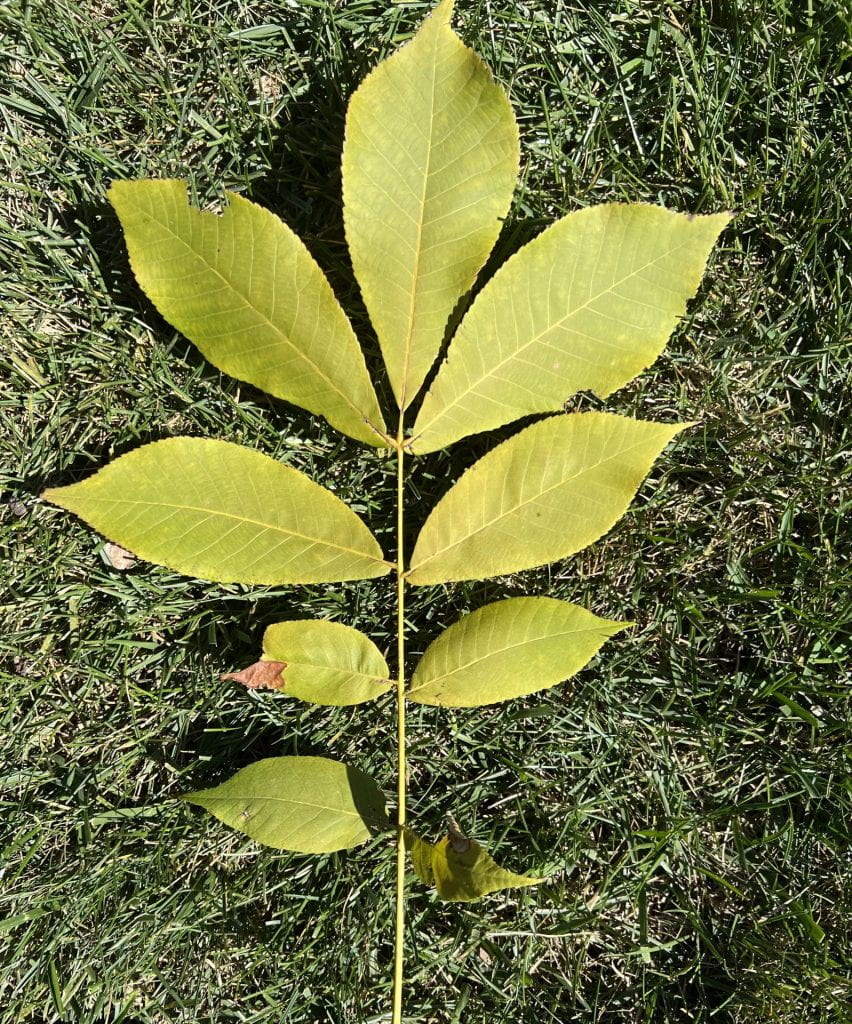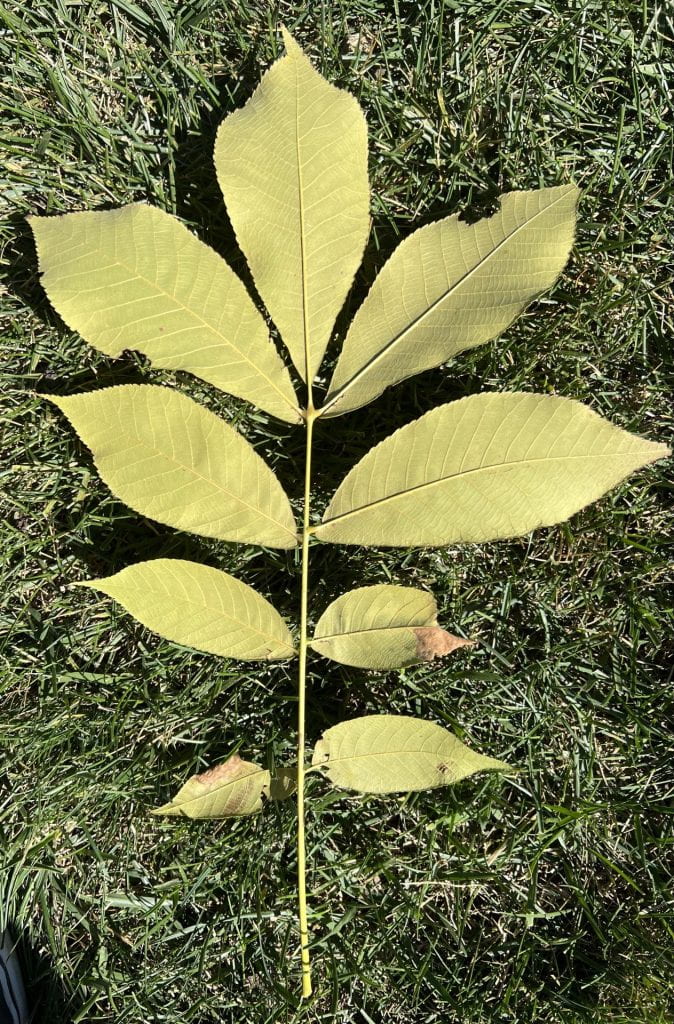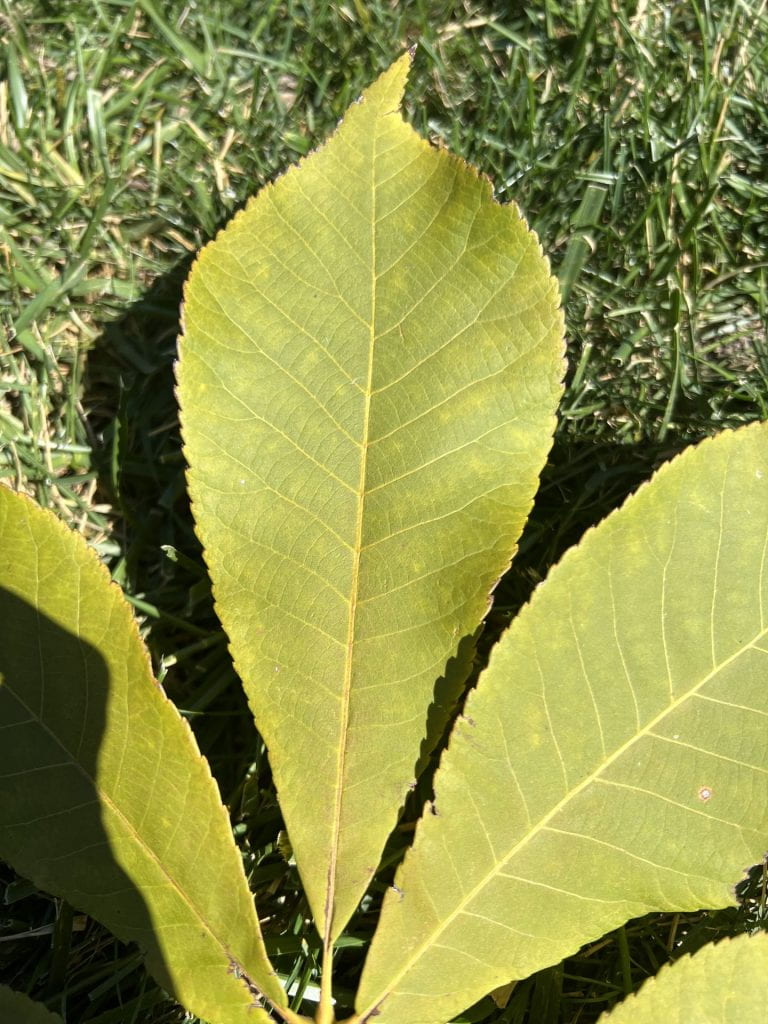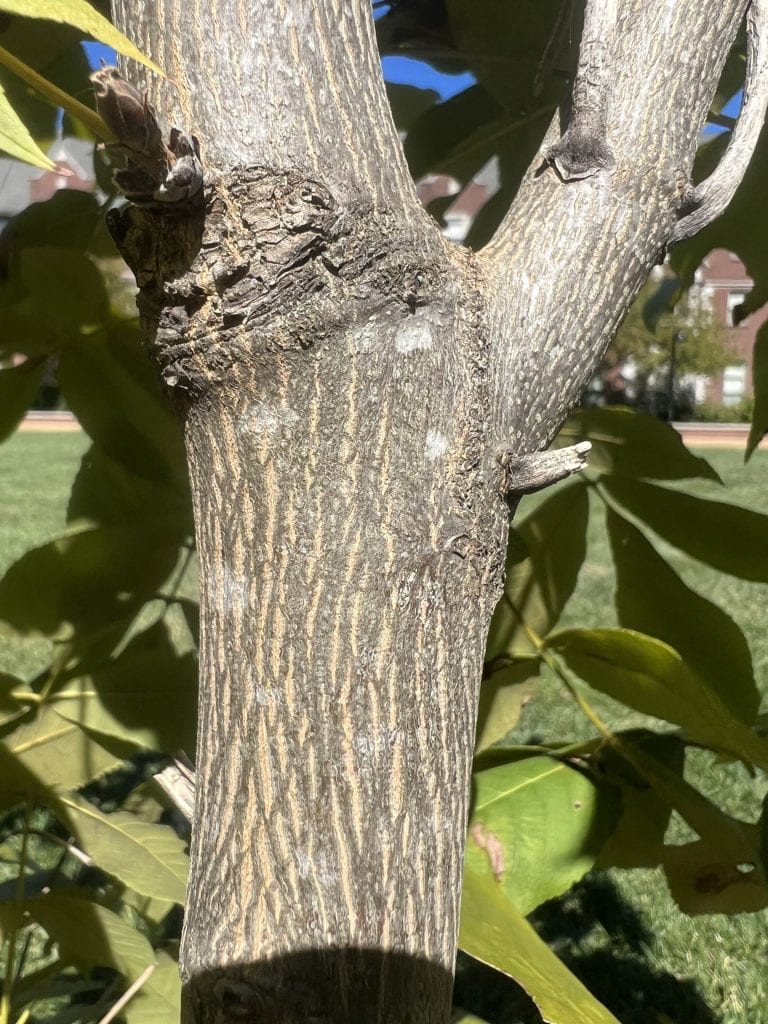Shellbark Hickory
Arbor Walk #114, TreeKeeper ID #4255

The Shellbark Hickory is a member of Juglandaceae (Walnut family) that actually produces larger edible nuts than its sister species, the Pecan. The nuts are prized by both humans and wildlife, and its peeling bark can be used for basket-weaving. The Shellbark Hickory is not a dominant species in its range, but may be found in a variety of lowland ecosystem types. This hickory is distinctive for its large nut, rounded leaflets, and thin, peeling scales.

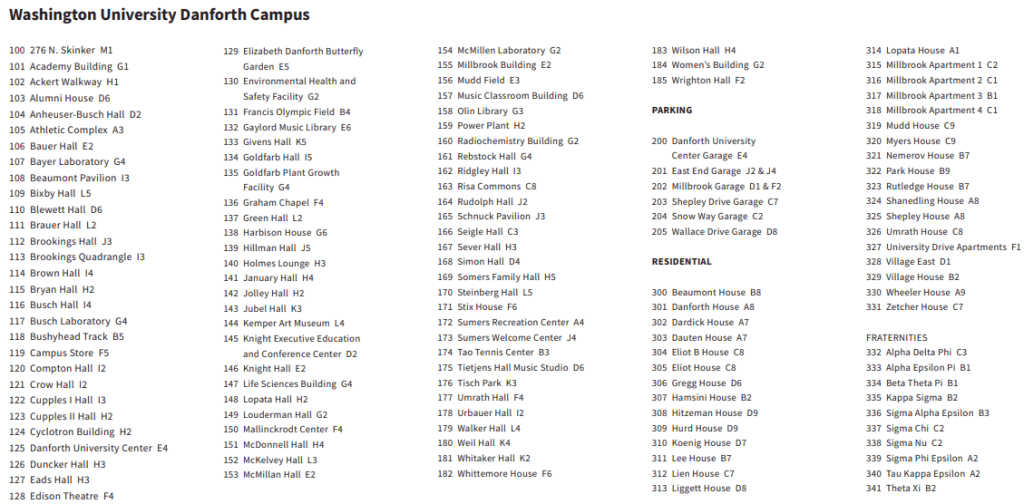
GPS Coordinates
N/A
Percent Concrete
N/A
Distance to Buildings
| Year | Close Building #1 | Close Building #2 | Close Building #3 |
|---|---|---|---|
Distance to Other Species
| Year | Close Species #1 | Close Species # 2 | Close Species # 3 |
|---|---|---|---|
Standard Measurements
| Year | Height (m) | DBH (cm) | Crown Diameter N-S (m) | Crown Diameter E-W (m) | Average Crown Diameter (m) |
|---|---|---|---|---|---|
| 2023 | 2.6 | 1 | 0.68 | 0.84 | 0.76 |
Nests and Pests
| Year | Description |
|---|---|
| 2023 | N/A |
Leaf Identification
The leaves of the Shellbark Hickory are pinnately compund with 5 to 9 leaflets (usually 7; always an odd number). They are typically 15″ to 24″ long, and the leaflets are typically 4″ to 8″ long. The leaflets are obovate and the underside is sometimes tomentose (covered in dense, short hairs). The margin is serrated, and the venation is pinnate.
Twig and Bud Identification
The twigs of the Shellbark Hickory are yellowish-green or brown with numerous lenticels (pores). The terminal buds are elongated and brown, with hairy peeling scales. Despite their size, these are still leaf buds. The axillary buds are smaller, rounder, and the scales are tightly pressed on the bud.
Bark Identification
The Shellbark Hickory’s bark is smooth with shallow interlacing ridges that turn to long, thin peeling vertical strips with age.
Fruit Identification
The fruit of the Shellbark Hickory are huge nuts (2″ to 3″ long). The husk is about 1/2″ thick and turns from tan to brown when mature. The nut is four-ribbed and edible. The fruit ripens in the fall.
Flower Identification
The male flowers of the Shellbark Hickory are 2″ to 3″ long, yellowish-green catkins. The female flowers are short and in clusters of 2 to 6 at the end of branches. The flowers bloom in mid-spring.
Hickory ID Tips
- The Shellbark Hickory has similar peeling bark to the Shagbark Hickory; however, the Shellbark Hickory develops its “shaggy” bark much later in its maturity, and the scales are longer and thinner than the Shagbark Hickory.
- The leaflets of the Shellbark Hickory are some of the widest and roundest leaflets among the common North American hickories.


